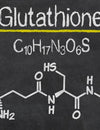Gene analysis and metabolic testing were implemented at the start of the study and after 8
weeks of practicing these methods. After 8 weeks, the participant’s test results were compared
with the test results they had when they started. They were also compared to a group with long
term experience in practicing these methods.

We know that the ability to relax can help reduce blood pressure, anxiety and improve sleep.
We also know that the practice of meditation, yoga and repetitive prayer can produce a
relaxation response. A relaxation response is the opposite of a stress response.
The researchers involved in the following study wanted to investigate why these practices may
produce beneficial health outcomes (Bhasin MK, et.al., 2013).
The participants were 26 healthy subjects with no prior experience practicing any of these
methods of relaxation.

It was interesting that changes were seen in both short-term and long-term practitioners even if
more changes were seen in the ones who had practiced long term.
The practice enhanced expression of genes associated with energy metabolism,
mitochondrial function, insulin secretion, and telomere maintenance, and reduced
expression of genes linked to inflammatory responses and stress-related pathways.
All of this is apparently possible by using your mind.
Reference:
Bhasin MK, Dusek JA, Chang BH, Joseph MG, Denninger JW, Fricchione GL, Benson H,
Libermann TA. Relaxation response induces temporal transcriptome changes in energy
metabolism, insulin secretion and inflammatory pathways. PLoS One. 2013 May 1;8(5):e62817.

From Stressed to Relaxed in 60 Seconds Program
You will learn:
- How to implement acupuncture knowledge and affect the vagus nerve in seconds.
- What to do to literally feel more relaxed and also feel less pain and stiffness in your neck in just 60 seconds
- How to create lasting results and be more stress-resistant.
- How to train your mind so you are in control of how you feel instead of letting other people or situations control you.






